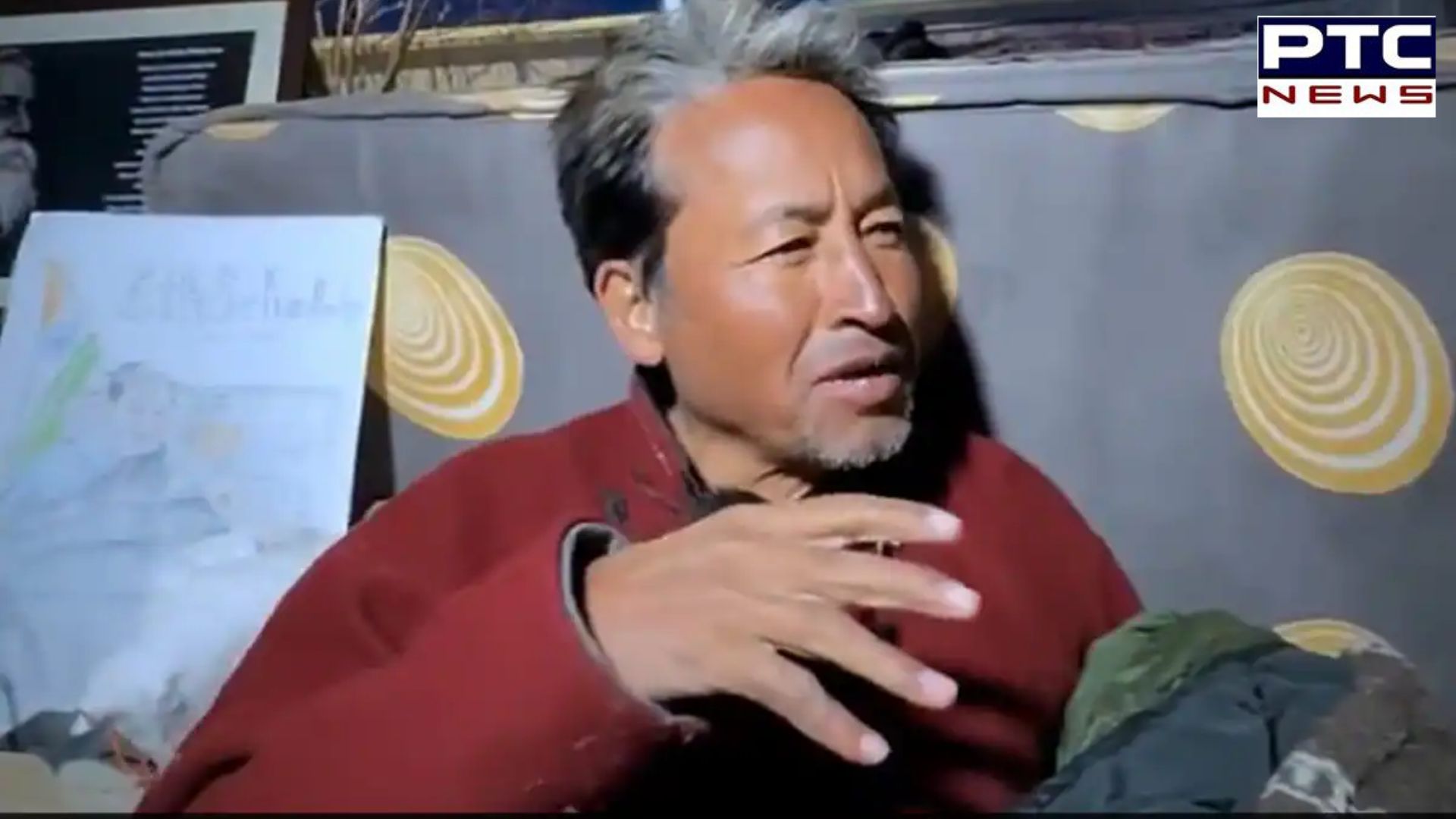

Sonam Wangchuk's hunger strike enters Day 15 in Ladakh: What demands does he advocate?
PTC News Desk: Enduring harsh sub-zero temperatures, environmentalist Sonam Wangchuk commenced his 'climate fast' on March 6 in Leh, Ladakh, advocating for significant reforms and safeguards for the region. His steadfast protest has garnered attention and support, prompting the Kargil Democratic Alliance (KDA) to declare a half-day general strike on March 20 in solidarity with Wangchuk's cause.
The primary demand driving Wangchuk's hunger strike is the call for statehood and constitutional protections under the sixth schedule for Ladakh, a Union Territory. This demand reflects a broader aspiration for autonomy and recognition of Ladakh's unique cultural and environmental heritage.
The impetus for Wangchuk's protest stems from the failure of negotiations between representatives of Leh-based Apex body and the Kargil Democratic Alliance (KDA) with the central government. With talks reaching a deadlock, Wangchuk embarked on his hunger strike, symbolising a resolute stance in pursuit of justice and recognition for Ladakh's distinct identity.
END OF DAY 14 OF #CLIMATEFAST
Many of you have been asking about my health. Well I'm more than alive & ... just a bit less than kicking. And my claim is backed by proof now. Today the Physician paid a visit and after test found this:
BP: 120/70
Pulse: 72
Blood oxygen : 94%… pic.twitter.com/vReeqmYtMn — Sonam Wangchuk (@Wangchuk66) March 19, 2024
In addition to his hunger strike, Wangchuk announced plans for a border march to raise awareness of Ladakh's plight. This march aims to spotlight the challenges faced by Ladakhi nomads and farmers, who are increasingly losing access to vital pasturelands due to industrial expansion in southern regions and encroachment from the northern border.
Wangchuk's determination to mobilise support and bring attention to Ladakh's pressing issues underscores the urgency of addressing the region's socio-economic and environmental concerns. As his hunger strike enters its fifteenth day, the significance of his demands resonates not only within Ladakh but also on a national scale, prompting reflection on the need for inclusive governance and equitable development policies for all regions of India.
Amidst his protest, Sonam Wangchuk advocates for four pivotal demands aimed at securing the rights and autonomy of Ladakh.
1. Statehood and Sixth Schedule Implementation: Wangchuk calls for Ladakh to be granted statehood and for the implementation of the Sixth Schedule of the Constitution, which provides protections for land and a level of autonomy for tribal areas.
2. Separate Representation in Parliament: Wangchuk emphasises the need for separate Lok Sabha seats for Leh and Kargil districts, ensuring adequate representation for the diverse regions of Ladakh.
3. Distinct Recruitment Process and Public Service Commission: Wangchuk demands the establishment of a separate recruitment process and Public Service Commission for Ladakh, recognising the unique needs and characteristics of the region.
4. Protection Against Industrial Exploitation: Wangchuk raises concerns about Ladakh's vulnerability to industrial exploitation under its current Union Territory status. He warns against potential harm to the fragile Himalayan ecosystem and calls for measures to safeguard the region's environmental integrity.
Through these demands, Wangchuk aims to address the socio-political and environmental challenges facing Ladakh, advocating for greater autonomy, representation, and protection of its cultural and ecological heritage.
Also Read: Zomato drops green uniforms for 'pure veg' fleet amid controversy: Prioritises rider safety...
Sonam Wangchuk accuses the central government of breaching the trust of the people by failing to fulfill promises made over the span of four years.
"After four years of procrastination, the Centre abruptly reneged on its commitments on March 4. This represents a complete betrayal of trust in leaders, governments, and the electoral process. If such actions persist, they will set a detrimental precedent for future elections and governments," Wangchuk asserted.
Referring to Prime Minister Modi's purported aspirations for the Nobel Peace Prize, Wangchuk emphasised the importance of integrity in leadership, drawing from his own experiences lecturing at investiture ceremonies for the Nobel Foundation. He urged for the restoration of basic democratic principles in Ladakh, highlighting the disconnect between the government's rhetoric and its actions.
While anticipating full democracy for Jammu and Kashmir post-assembly elections, Wangchuk lamented Ladakh's prospective governance under a bureaucratic regime controlled from New Delhi.
Despite India's self-proclaimed title as the 'Mother of Democracy,' Wangchuk criticised the denial of democratic rights to the people of Ladakh, depicting it as a form of neglectful governance akin to a 'stepmother of democracy.' He called upon the global community to support their cause, urging for collective action through congregations and fasting on March 24.
In his impassioned plea, Wangchuk underscored the imperative of upholding democratic values and ensuring equitable representation for all regions, transcending political rhetoric to prioritise the welfare of the people.
Also Read: Budaun double murder: Barber invades UP residence, requests tea, tragically kills two children
Also Read: Delhi regains title as world's most polluted capital
(Inputs from agencies)
-
